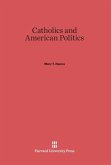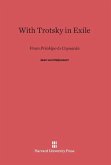For nearly half a century, until his death in October 1948, Judah Magnes occupied a singular place in Jewish public life. He won fame early as a preacher and communal leader, but abandoned these pursuits at the height of his influence for the roles of political dissenter and moral gadfly. During World War I he became an outspoken pacifist and supporter of radical causes. Settling permanently in Palestine in 1922, he was a founder and the first president of the Hebrew University.
Increasingly, he viewed rapprochement with the Arabs as the practical and moral test of Zionism, and the formation of a bi-national state of Arabs and Jews became his chief political goal. His life interests thus focused on the core issues that confronted and still confront the Jewish people: group survival in democratic America, the direction and character of the return to Zion, and the reconciliation of universal ideals with Jewish aspirations and needs.
Dissenter in Zion draws upon a rich corpus of private letters, personal journals, and diaries to offer a moving account of an eloquent and sensitive person grappling with the great questions of the day and of an activist striving to translate private moral feelings into public deeds through politics and diplomacy. We see Magnes disagreeing with Brandeis over the leadership and direction of American Zionism and with Weizmann and Ben-Gurion over ways to achieve peaceful relations with the Arabs; defending himself against charges by Einstein that he was mismanaging the affairs of the Hebrew University; and persistently negotiating with Arab leaders, trying to reach a compromise on the eve of the establishment of the State of Israel.
Dissenter in Zion also contains a biographical essay on Magnes by Arthur Goren, assessing his ideas and motives and placing him in the context of his times. It shows Magnes's profundity without covering up his weaknesses, his lifelong tactic forcourting repeated defeat in favor of long-term goals that could not come to pass in his lifetime.
Increasingly, he viewed rapprochement with the Arabs as the practical and moral test of Zionism, and the formation of a bi-national state of Arabs and Jews became his chief political goal. His life interests thus focused on the core issues that confronted and still confront the Jewish people: group survival in democratic America, the direction and character of the return to Zion, and the reconciliation of universal ideals with Jewish aspirations and needs.
Dissenter in Zion draws upon a rich corpus of private letters, personal journals, and diaries to offer a moving account of an eloquent and sensitive person grappling with the great questions of the day and of an activist striving to translate private moral feelings into public deeds through politics and diplomacy. We see Magnes disagreeing with Brandeis over the leadership and direction of American Zionism and with Weizmann and Ben-Gurion over ways to achieve peaceful relations with the Arabs; defending himself against charges by Einstein that he was mismanaging the affairs of the Hebrew University; and persistently negotiating with Arab leaders, trying to reach a compromise on the eve of the establishment of the State of Israel.
Dissenter in Zion also contains a biographical essay on Magnes by Arthur Goren, assessing his ideas and motives and placing him in the context of his times. It shows Magnes's profundity without covering up his weaknesses, his lifelong tactic forcourting repeated defeat in favor of long-term goals that could not come to pass in his lifetime.
Judah L. Magnes was a striking combination of an American with a turn-of-the-century highmindedness, East European Jewish passion, and a devotion to pacifism. He was a Zionist who demanded equal justice for Jews and Arabs. His was a unique career in both America and Palestine. In this book, a lonely giant is remembered.
Judah L. Magnes was the Jewish maverick personified, the perpetual dissenter from conventional wisdom and establishment politics. Though he was all his life a leader in the Jewish community, he nevertheless always remained the outsider, the critical voice, the political conscience, the moral castigator. More often than not the causes he espoused--in the Jewish community as in the larger society--went down to defeat, to end up in the dust bin of history.
Professor Arthur A. Goren has now rescued Magnes from oblivion, dusted him off, and brought him and his causes once again into the light. This splendid collection of Magnes's writings restores him as he was, always at the center of history in times thick with history. Magnes's mind and eloquence were equal to the great themes which he engaged and the great controversies he argued: war and peace, Zionism and Jewish nationalism, religion and the nature of Jewish identity, social idealism and politics.
It is a striking testimony to Magnes's depth of intellect and breadth of interest that his writings speak to us today with relevance and even urgency. A stimulating thinker in his time, he speaks to us also in our time. The great and still pressing issues of Jewish communal and political existence are alive in these pages. Magnes himself comes alive in Goren's vivid portrait of the man and his world."
Judah L. Magnes was the Jewish maverick personified, the perpetual dissenter from conventional wisdom and establishment politics. Though he was all his life a leader in the Jewish community, he nevertheless always remained the outsider, the critical voice, the political conscience, the moral castigator. More often than not the causes he espoused--in the Jewish community as in the larger society--went down to defeat, to end up in the dust bin of history.
Professor Arthur A. Goren has now rescued Magnes from oblivion, dusted him off, and brought him and his causes once again into the light. This splendid collection of Magnes's writings restores him as he was, always at the center of history in times thick with history. Magnes's mind and eloquence were equal to the great themes which he engaged and the great controversies he argued: war and peace, Zionism and Jewish nationalism, religion and the nature of Jewish identity, social idealism and politics.
It is a striking testimony to Magnes's depth of intellect and breadth of interest that his writings speak to us today with relevance and even urgency. A stimulating thinker in his time, he speaks to us also in our time. The great and still pressing issues of Jewish communal and political existence are alive in these pages. Magnes himself comes alive in Goren's vivid portrait of the man and his world."








